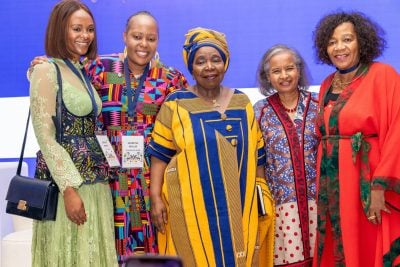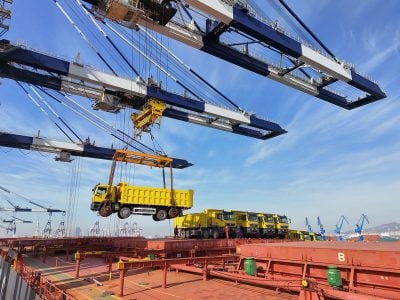Attijariwafa Bank has expanded from its home in Morocco to many other countries in Africa. CEO Mohamed El Kettani explains how and why it has been making these ambitious strides.
What are the keys to the success of Attijariwafa Bank in Africa?
One of the key factors in the first stage of expansion into Francophone Africa is the fact that we have built an integrated banking and finance group, which has already established firm foundations in Morocco itself. An international strategy can only be successful if it has a strong position in its domestic market. This is the case with Attijariwafa Bank.
We are the oldest Moroccan bank, founded in 1904. The merger in 2003 of the Banque Commerciale du Maroc, the leading private bank, and Wafabank resulted in the creation of Attijariwafa Bank. We feel that we have been enriched by the addition of the personnel from both banks.
We had the choice of either restructuring, as international banks do, and offering compensation to some personnel, or capitalising on existing skills. It was thus that we initiated an ambitious development programme in Morocco eight years ago so that we could be involved in increasing access to banking in our country. We subsequently extended our network by adopting our first roadmap with the acquisition of banks on the African continent.
Did you maximise the opportunities in your domestic market before turning your attention towards Africa?
Absolutely. Teams were mobilised to manage this merger, which took two years. We ended up with a market share of between 26% and 40% in a sector that has 16 banks. We exceeded the critical size needed before we could consider expanding internationally. Fortified by this strong position and our human capital, we sought out considerable growth. Given our cultural and historical proximity, Francophone Africa has been the most obvious market.
The African market, particularly in this area, is not easy. How did you go about ensuring a secure environment?
We capitalised on the experience and model that enabled our success in Morocco. This is because, in spite of their differences, African countries have a common denominator, not least when it comes to sociocultural sensitivity and the nature and structure of the country’s economic fabric. Also, we are operating in an environment which has been strongly shaped by family capitalism.
In Morocco, Attijariwafa Bank has developed products and services for SMEs [small and medium enterprises] and ways of approaching customers, particularly microbusinesses, operating in the informal sector.
We have therefore developed risk evaluation strategies and rating tools for SMEs and scoring tools for microbusinesses. We are now duplicating these models but adapting them to the context and reality of each country. It is this which enables us to gain market shares. We have invested in Central and West African countries, where access to banking is between 2% and 10%. As a result, there is plenty still to do to provide solutions and democratise access to banking products, particularly for the middle classes, microbusinesses and SMEs.
These groups have been ignored by international banks operating on the African continent. Why?
Because they have not developed the strategies they need for a better understanding of the market and to make the necessary changes to procedures, methods of analysis, appropriate supervision and monitoring tools. If we have this strength, it’s because we are a Moroccan bank and therefore African.
Your strength is also that you adapt to the realities of each country. How did you adopt the culture of these countries and capitalise on your proximity?
At the start, people believed that we would take a populist line, enticing them with promises: ‘When we’re in Tunisia, we’ll be Tunisian, when we’re in Congo, we’ll be Congolese, when we’re in Senegal, we’ll be Senegalese…’ The strategy devised by Attijariwafa Bank shows that our plan will never be centred on Morocco. Our objective is to be a leading bank in each country.
In what way?
Attijariwafa does not just want to open a little bank. We want to be one of the leaders, at the front of the pack and have a coherent strategy that supports the social and economic development of the country in which we’re operating. Our vision is structured around the idea that each branch becomes the focus of the other branches. The men and women who work at the heart of our institution are the best equipped to understand the potential synergies that could be developed with other countries.
For example, Senegal and Côte d’Ivoire were keen to develop synergies with Mali, Burkina Faso, Niger, Togo or Benin…So, yes, we operate using the principle of regional integration.
This is because what counts in our strategies is to be highly active in developing products and services across all customer segments on a national scale, serving households, the middle classes, affluent, wealthy people, SMEs and microbusinesses as well as large company groups and governments. At the same time, we want to continue to consolidate intra-African trade and co-investments. This turned into the idea that we had five years ago of organising the Africa Development Forum.
How is your strategy being rolled out in the rest of the continent?
Before initiating our African strategy, we took a scientific look at it. The first thing we did was study the potential of each country. In each case, we asked ourselves: Can we genuinely bring added value to the country’s banking system? Is the country stable enough for us to be able to implement our development model?
Once this was complete, we carried out some research. As I said, our objective is to have some ‘targets’ which occupy a relatively comfortable position in their natural market. This meant spotting banks to buy, as there are always opportunities for the transfer of banking assets in the
African market. If not, we would rather grow a bank from the ground up. If we purchase a bank, we implement a two-year transformation project to bring the purchased bank up to the standards of the Group.
We are very demanding on this point in terms of governance, overhauling processes and procedures and changing information systems…
We have a global information system that we implement in all our branches. By sharing information, we are able to publish our consolidated accounts. This information system allows us to control all of our banks’ accounting.
We pursue a policy which relies on human capital, with professional development occurring through four academies, the first in Casablanca, the second in Tunisia, where access to banking has already been developed on a par with Morocco and where we have a large workforce. For West Africa, we have an academy in Dakar and in May 2014, we founded the fourth academy in Douala to encourage professional development in Central Africa.
The first phase of our continental expansion is to establish in all Francophone African countries. We have yet to expand into Algeria, Chad and the Central African Republic. There are eight countries in West Africa and six in Central Africa. That makes 19 countries including those in the Maghreb. We have a representative office in Libya. We are waiting until the situation in this country stabilises. We are now starting a second stage of expansion beyond Francophone borders.
Approaching this other part of the continent will required a ‘cultural revolution’…
Yes, a cultural and mental revolution. Our creed is ‘Give me a woman or a man and I will give you a project’. It is the teams who carry out the projects. Without them, we would never be able to focus on development.
In order to start this second part of our roadmap, we had to focus on our workforce in order to enter new countries whose cultures are different from those in Francophone Africa.
What makes our model special is that we have trust in the skills of the local workforce. Out of 5,700 people working in our African branches, in 13 countries, there are only 23 Moroccans. Moreover, the latter will gradually make way for local skills.
This expansion will require significant capital. Where will this come from?
Equity and resources are rare. You have to apportion them with great care and protect them. This is our group strategy. We have a policy of allocating resources and equity country by country and asset by asset. In
Morocco, we are fortunate that our regulator, the Central Bank, adopted the Basel I requirements, then Basel II and will shortly be adopting Basel III; the Moroccan banking sector complies with the strictest international requirements and this is why the bank’s growth is based on such strong foundations.
The first stage, the 13 countries in which we are investing, was entirely self-financed thanks to generated cash flow. We only had to carry out one capital increase of 2bn dirhams ($204m), restricted to group employees. Employees thus became shareholders of 5% of the bank’s capital. It is one of the highest levels in Africa out of all the companies listed on the stock exchange.
We are listed on the Casablanca stock exchange and Attijariwafa shares are very popular with investors. If we carry out large-scale
projects, we can turn to the financial market to raise capital.
Senegal, Côte d’Ivoire, Gabon and others have plans regarding the emergence of their countries. Are you involved in these major projects?
In West Africa today, Attijariwafa Bank is by far the leading banking provider in CFA francs. When you are that size, it is vital that you are involved in financing projects aimed at developing the countries in this region.
So you’re transforming savings into investments…
First of all, we are the leading facilitator of treasury bonds. We have a position as a leader in facilitating finance for the governments of this region. Beyond financing economic operators and households, we finance government projects, specifically within the framework of PPP concessions or finance projects. This is why we are involved in financing power plants in Senegal, Côte d’Ivoire and Mali. We are helping to finance airport expansions like the one at Bamako. We are currently appointed by Côte d’Ivoire to advise on and secure finance for a 1,500km network of motorways. We are actively involved in supporting the development of these countries.
You operate in banking, insurance, consumer credit and business banking. Does this not result in a lack of focus and cohesion?
There is no lack of focus from the customer’s point of view. Beyond financing their cash needs and investment projects, a customer often needs advice. In order to retain each customer and create a lasting relationship, an integrated banking group needs to offer a whole range of services. There’s no lack of focus.
Quite the opposite. We are developing the cohesion between our divisions and synergies follow on from this; it’s this way of building an integrated banking and finance group that has been shown to be successful in Morocco and that we are in the process of implementing in the countries in which we are operating.
It seems that the forum you are organising is becoming very influential as well as building a culture that crosses banking, finance and even economics across Africa…
We first had this idea about the Africa Development Forum five years ago. It was inspired by a discussion with King Mohamed VI. He has repeatedly challenged the Moroccan private sector, calling upon it to get involved in Africa. His principles have been shaped by a belief in South-South cooperation. He has come back to the issue several times. Based on these political messages regarding the Moroccan private sector, we seized the opportunity to launch our international strategies. A private group like ours needed to set an example. We told ourselves that we had a role to play and set out to conquer the African market. We then asked ourselves how to strengthen South-South cooperation.
We looked at the issue from all angles and listened to our customers. They said: ‘We have issues with connectivity and air transport; we don’t know what’s happening where you are in Morocco’. We said to ourselves: ‘Here’s an opportunity to create a platform where, over two days, people can come together in a specific location, somewhere we can organise discussion between economic and political players to manage South-South integration in a practical way’. This is why we created the Africa Development Forum.
When you look at the banking map of Morocco, there is wide range of competitors. Do they overlap at all or does each player stay within their own domain?
I sincerely welcome the development work that our colleagues, the BMCE Group and the BCP Group etc., are doing in Africa. We have great respect for each other. However, when it comes to business, the gloves are off. I can assure you that each one defends their interest… in the best interest of all African stakeholders. Competition is alive and well.
Hichem Ben Yaïche
Want to continue reading? Subscribe today.
You've read all your free articles for this month! Subscribe now to enjoy full access to our content.
Digital Monthly
£8.00 / month
Receive full unlimited access to our articles, opinions, podcasts and more.
Digital Yearly
£70.00 / year
Our best value offer - save £26 and gain access to all of our digital content for an entire year!
 Sign in with Google
Sign in with Google 


